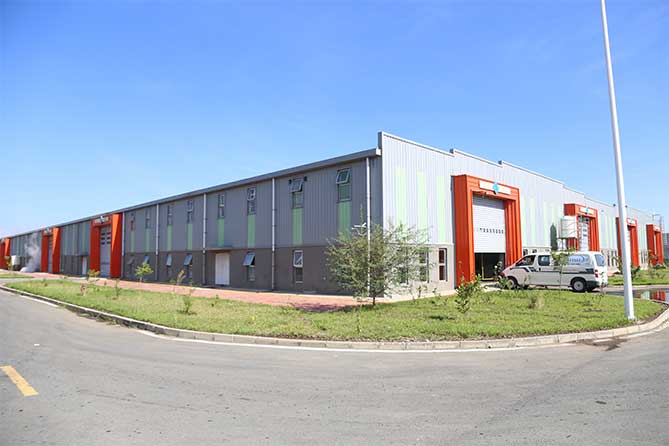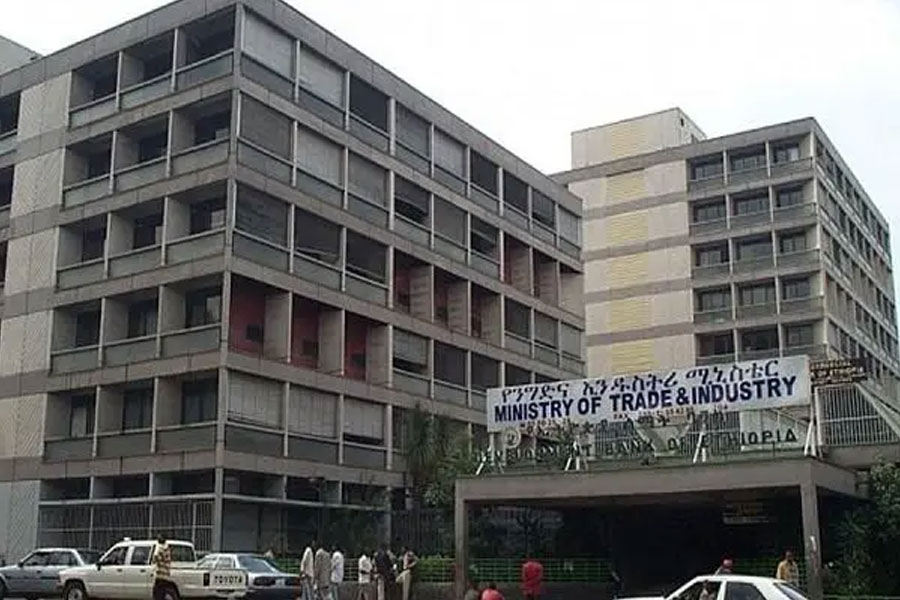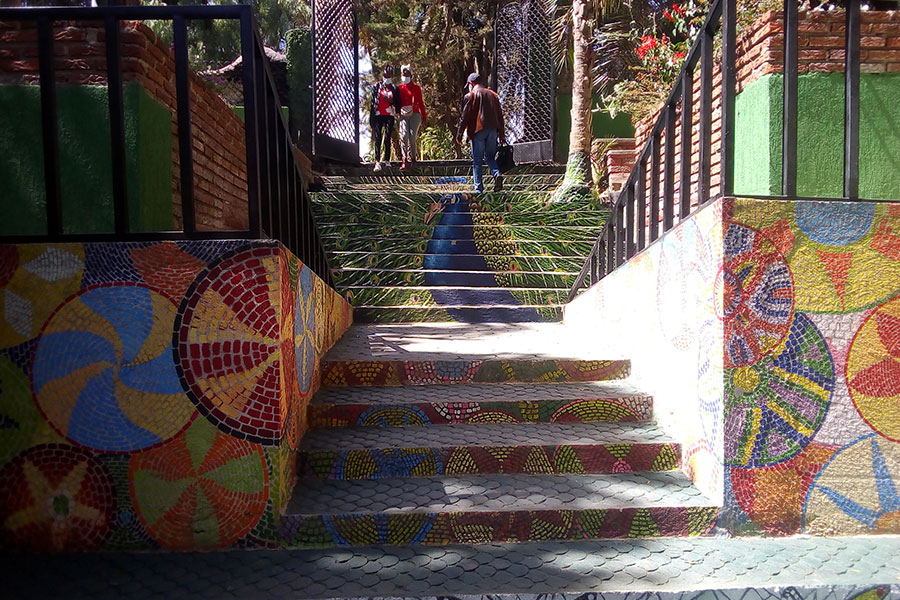
Apr 4 , 2020
By MAYA MISIKIR ( FORTUNE STAFF WRITER )
 Hawassa Industrial Park, which is one of the seven fully operational industrial parks in the country, takes the lion's share in terms of the number of people employed there, with 35,000 in direct production.
Hawassa Industrial Park, which is one of the seven fully operational industrial parks in the country, takes the lion's share in terms of the number of people employed there, with 35,000 in direct production. Close to half of the industries operating at the Hawassa Industrial Park (HIP) stopped production this week due to a widespread slowdown in the global economy after the outbreak of Novel Coronavirus (COVID-19). These companies also gave up to three weeks paid annual leave to their employees.
Ten of the total 22 companies operating in the park submitted letters to the management this week, notifying them of the temporary halt of operations, according to Belay Hailemichael, general manager at the Hawassa Industrial Park's Investment Commission.
The Park, which sends over 90pc of its exports to the United States and Europe, has had a significant dip in orders due to the effects of COVID-19. It contains three local and 19 international textile and garment companies.
The Park had been dealing with shortages of raw material for its production, 75pc of which comes from China, according to Belay.
"Initially, the Park faced the problem of sourcing raw materials when China was hit hardest by the Coronavirus," he said. "Now that the virus has spread to Europe and the United States, it has impacted our orders as most of the Park's importers are in those two places."
Companies operating in the park pay over 100 million Br in salaries and 15 million Br in income tax a month to the regional government, according to Belay.
Hawassa Industrial Park, which is one of the seven fully operational industrial parks in the country, takes the lion's share in terms of the number of people employed there, with 35,000 in direct production. All of the operational industrial parks in the country employ a total of 65,000 workers.
Indochine Apparel is one of the garment manufacturers in the Park that submitted their letter and stopped operations as of last Friday, March 27, 2020.
The employees are on leave for 21 days and are being contacted every two days to follow-up on their health, according to an employee that wanted to remain anonymous.
Companies operating in the park pay over 100 million Br in salaries and 15 million Br in income tax a month to the regional government, according to Belay.
"We have been operating under tight health protocols," Belay said, adding that some companies in the park started producing masks for their employees.
"Plans on how to retain some workers and continue the production of masks are also being devised," Belay said.
One of the companies still in operation in the Park is Chargeurs Fashion Technologies Plc, a French company that started with an investment of two million dollars and became operational in 2017.
The company has seen a decline of 25pc in its orders in March, according to the company's General Manager, Hibret Lemma.
"Our main exports go to the United States, and we now have orders that are put on hold," he said. "As the company manufactures accessories to be used in clothing, it has indirectly been affected, but we will continue to work as long as we have orders."
The company is now regrouping to see what the next steps should be. Chargeur Fashion has been operational for three years and has spent close to seven months training its 27 employees, according to Hibert, and it will try and retain them for as long as possible.
The Hawassa Industrial Park Investment Association is currently exploring new ways to remain operational, according to Hibret, also a board member of the Association.
Among the various measures being taken by the Industrial Parks Development Commission (IPDC) across the country reducing employee numbers so as to prevent contact and creating a task force to follow up on the health of employees can be mentioned, according to Derebe Debele, communications manager at IPDC.
The IPDC has also spent 1.8 million Br on the procurement of masks, gloves and sanitizer that are being distributed to all its employees.
There are a lot of measures that can be taken to make it through this difficult time, advises Ewenetu Feleke, delivery assurance and capability building manager at the Job Creation Commission.
The government can alleviate burdens on investors through lending, cutting down on costs and rescheduling loans as well as tax reductions, according to Ewenetu.
"Additionally, the private sector can look into repurposing industries to start producing masks," he said.
PUBLISHED ON
Apr 04,2020 [ VOL
21 , NO
1040]

Radar | Mar 23,2019

Fortune News | Jan 02,2021

Fortune News | Nov 14,2020

Radar | Feb 12,2022

Radar | Jun 22,2024

Radar | Jan 23,2021

Radar | Jan 03,2021

Fortune News | Feb 08,2020

Radar | Aug 31,2019

Life Matters | Sep 10,2021

Dec 22 , 2024 . By TIZITA SHEWAFERAW
Charged with transforming colossal state-owned enterprises into modern and competitiv...

Aug 18 , 2024 . By AKSAH ITALO
Although predictable Yonas Zerihun's job in the ride-hailing service is not immune to...

Jul 28 , 2024 . By TIZITA SHEWAFERAW
Unhabitual, perhaps too many, Samuel Gebreyohannes, 38, used to occasionally enjoy a couple of beers at breakfast. However, he recently swit...

Jul 13 , 2024 . By AKSAH ITALO
Investors who rely on tractors, trucks, and field vehicles for commuting, transporting commodities, and f...

Jun 28 , 2025
Meseret Damtie, the assertive auditor general, has never been shy about naming names...

Jun 21 , 2025
A well-worn adage says, “Budget is not destiny, but it is direction.” Examining t...

Jun 14 , 2025
Yet again, the Horn of Africa is bracing for trouble. A region already frayed by wars...

Jun 7 , 2025
Few promises shine brighter in Addis Abeba than the pledge of a roof for every family...